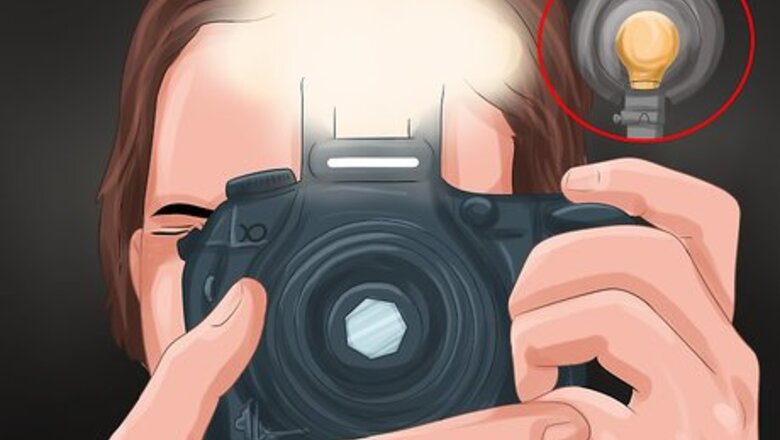
views
Improving Your Photography Skills
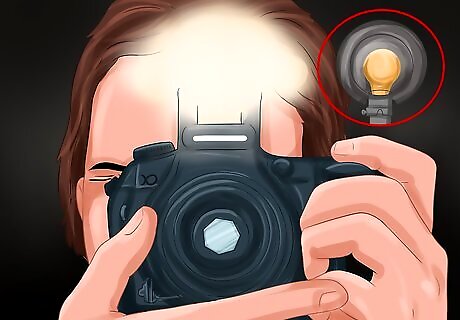
Upgrade your equipment. If you want a career as a freelance photographer, you can’t take photos with your phone or an old point-and-shoot camera. That's why it's important to invest in an up-to-date digital camera that you can use to take high-quality photos and upgrade the equipment when your business starts turning a profit. When you're first starting out, consider purchasing a used camera and other equipment you might need to help keep costs down. Depending on what type of photography you plan to specialize in, you may also need lights, diffusers, and reflectors to ensure that the lighting is right for your photos. While your camera comes with a lens, you may want to purchase additional lenses, such as a wide zoom or pancake, to allow you to vary your shots. In order to edit your photos, you’ll also need access to a computer and photo editing software.
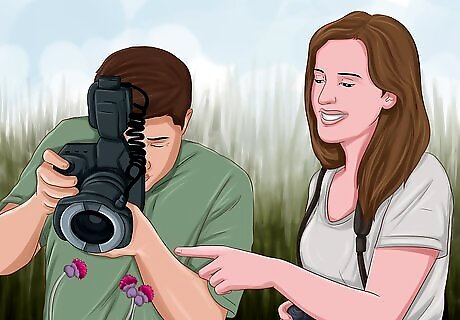
Take classes. Some photography skills come naturally, such as having a good eye for composition, but there is some knowledge that needs to be learned, particularly if you’re not very familiar with using a camera. If you’re studying at or planning to attend college, your school probably offers photography courses, and may even have a major in the subject that can help prepare you for a career. If you’re not in college, consider taking some photography courses at your local community college or vocational school. If you can't find any local photography classes, many online school offer courses that can help your refine your skills. Art classes can also be helpful to a photographer because they can teach you how to develop a better eye and allow you to work on your composition. If you’re going to be running your own freelance business, you may want to take some business, marketing, and accounting classes too.

Get on-the-job training. Before you branch out on your own, it helps to get some job experience in the photography field. Working as an assistant to a professional photographer can be a great opportunity to learn tips and techniques, and ask the photographer for feedback on your pictures so you can improve your work. However, you can also work at a portrait studio where you take the photos yourself, and learn firsthand the kind of photos that customers tend to prefer. All of your on-the-job training doesn’t necessarily have to be paid. You can offer your photography services to friends and family who are having special events, such as anniversary parties or graduations, and get experience that way.
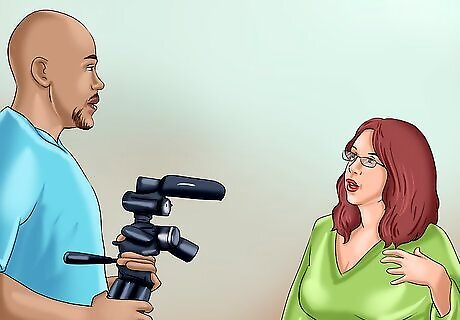
Enter some contests. When you’re feeling more confident, entering photography contests can be a good way to see how well your skills stack up against other photographers. If you win, you’ll also have an ideal achievement to add to your resume. In most cases, contests will also encourage you to be more creative with your photos, which may help you down the road. If you aren’t aware of any local photography contests, do an online search. You’ll find a wide array of national and international competitions that you may be interested in.
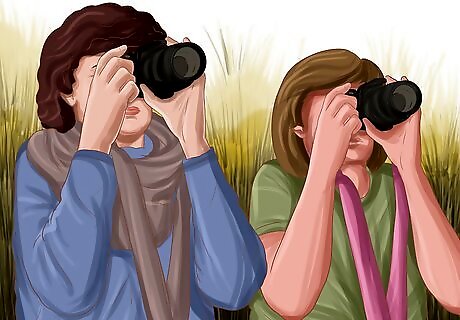
Join a photography group. Receiving constructive criticism from fellow photographers can help you hone your skills and take your photos to the next level. If you're a student, your college or university may have a photography club where you can discuss your work with other photographers.If you're not in school, you might ask at your local retail camera store to see if there are any clubs in your area. If you can't find a club in your area, consider starting your own. Ask other photographers that you know if they'd be willing to meet on a weekly or monthly basis to critique one another's work. Online photography groups or communities are another option if you can't find a group locally. You post your photos online, and other members can provide feedback. You can do an online search, but Google+ and Lightstalking are too good places to start.
Getting Clients

Create a website. When you’re starting a freelance photography business, you need a website to showcase your work so prospective clients can see what they can expect. You can also use your site to allow potential customers to get in touch with you, schedule your services, and deliver your finished photos. Make sure the site is easy to navigate, and contains only your best photos. If you don’t know much about building a website, WordPress is a good place to start because they have templates and themes designed specifically for photography. It’s a good idea to incorporate a blog into your website. Post a new photo with entry, so clients can see what you’ve been up to recently.

Establish social media accounts. In addition to a website, social media is an ideal way to market your services online. Photography is a visual medium, so a great photo can quickly go viral and familiarize potential clients with your work. Create Instagram, Facebook, Twitter, and Pinterest accounts, so you can show off your work in a setting where it’s much easier for people to share it. Include links to all of your social media accounts on your website, so potential clients can easily find them.

Print up business cards. Word of mouth can be an effective way for freelance photographers to get new clients, so it helps to have business cards that you can give to family, friends, and existing clients. They can pass the cards onto people they know who might be interested in your services. Create a distinct look for your business cards by including one of your photos on it. It can be a self-portrait so clients remember you specifically or a photo that you're particularly proud of and showcases your skills. Make sure that your cards contain all of your contact information, including your web address. You want potential clients to be able to find your online portfolio.

Network to generate leads. Hopefully, word of mouth will spread about your photography skills, but you don’t want to wait around for jobs to come to you. By making connections with related businesses, you may be able to find new clients. For example, if you want to work as an event photographer, you might contact wedding or party planners, catering halls, and other event-related businesses to introduce yourself and your work. That way, if a person planning an event asks for a recommendation for a photographer, your contact can pass your name along. If you’re interested in working as a commercial or product photograph, you might try to find a contact at a marketing or public relations firm.
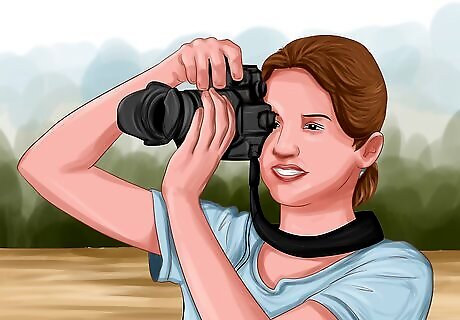
Do some free assignments. When you’re just starting out as a freelance photographer, building word of mouth is key. That’s why it often helps to do some jobs for free -- you can gain experience and generate a buzz with potential clients. If you’re specializing in special event or portrait photography, ask family and friends if they need any photographs taken. If you hope to break into commercial or product photography, see if there are any small businesses in your area that might allow you to shoot photos for their marketing materials. You may also want to consider holding sessions where you don't charge for the session itself. Instead, the clients only pay if they decide to purchase prints from you. That can be an effective way to lure new customers in and still make some money. Make sure to ask all of your free clients for testimonials after you take the photos. If they’re positive, you can use them in your promotional materials or as references for potential clients. If your free clients have any criticisms of your work, use them to improve your skills and services.
Starting a Freelance Photo Business
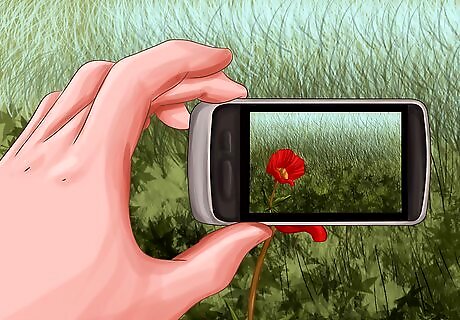
Choose a specialty. When you’re a professional photographer, you can specialize in different types of photography, such as news, weddings and other special events, or portraits. However, if you plan to freelance, it’s even more important to focus your business because you’ll need to know what type of equipment and accessories you’ll need and how to market your business. You don’t have to necessarily limit yourself to one specialty, though, because you'll often attract more business if you offer more services. For example, you might advertise yourself as an event and portrait photographer. Those two specialties go well together because a couple who hired you to shoot their wedding and liked their photos may remember you when it comes time to have their children's portraits taken. Event photography typically means taking photos at weddings, parties, graduations, and other special events. If you specialize in portrait photography, you’ll be taking photos of individuals, which often means families, children, and even pets. Commercial and product photography usually involves taking photos of products, properties, and other items to help a business market themselves. Stock photography refers to photos that are taken for the sole purpose of being sold. You can sell your photos through a stock photo agency, where individuals and businesses who need a photo of a certain object or situation can purchase them. News photographers take pictures of noteworthy events and people. While it can be an exciting job, it’s extremely difficult to break into the field as freelancer if you don't have previous experience.

Get a business license. Like any business, a freelance photography business needs some type of permit or license to operate in your city, county, or state. In most cases, you need a general business license. However, if you are running your business out of your home, you may also need a Home Occupancy Permit. Don't start taking any photos before you have the necessary license(s). If you're unsure what license(s) you need in your area or how to obtain them, you can find more information on the Small Business Administration's website (SBA.gov).

Consider taxes. As a freelancer, it will be your responsibility to pay both federal and state taxes because they won't be automatically taken out of your earnings as they would be by an employer. Because it can be somewhat confusing, it's usually a good idea to consult an accountant, whose knowledge and expertise can often help save you money. Try to find an accountant who specializes in small businesses, so you can trust that they're up to date on all the tax codes and benefits that will affect you. You can also ask your accountant for advice on what type of structure your business should take. Most photography businesses are usually sole proprietorships, meaning they're owned by a single person who receives all of the profits.

Set fees. Before you can start lining up clients, you need to know how much you plan to charge for your services. When it comes to creating a fee schedule, you should factor in expenses such as equipment, taxes, and operation fees. However, you should also consider the time that goes into each project, including transportation time, so you can ensure that you're making enough money to survive. There are various types of software, such as fotoQuote and BlinkBid, that help you estimate the costs involved in photography projects and create invoices for your customers.
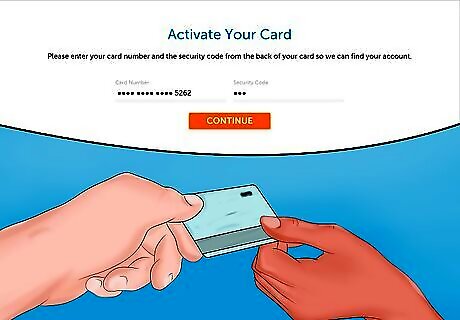
Decide what payment methods you'll accept. As you start your business, it's important to consider how you plan to collect fees from your clients. For example, you may decide to only accept cash. However, it's usually better to offer as many payment options as possible, so consider allowing credit card and check payments as well. If you want to accept credit cards for your photography services, there apps and dongles that make it possible to process them from your tablet or smartphone. You can also have your website set up to accept some type of online credit card payments.
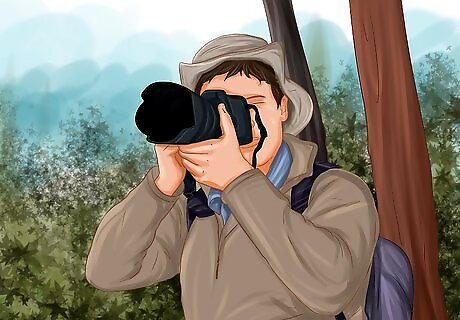
Build a portfolio. The most important tool in marketing yourself as a freelance photographer is an impressive collection of photos that you can show off to prospective clients. If you’re just starting out, ask family and friends if you can take photos of them for your portfolio. You can also seek out local models who might need photos for their own portfolios, so you can help each other out. Remember to consider your audience when you’re building your portfolio. For example, if you plan to market yourself as a wedding and event photographer, don’t fill your portfolio with nothing but product shots. If possible, create both a digital and hard copy of your portfolio. Some clients may enjoy the convenience of looking at your photos online or through a link, while others are more impressed with actual photographs.
















Comments
0 comment